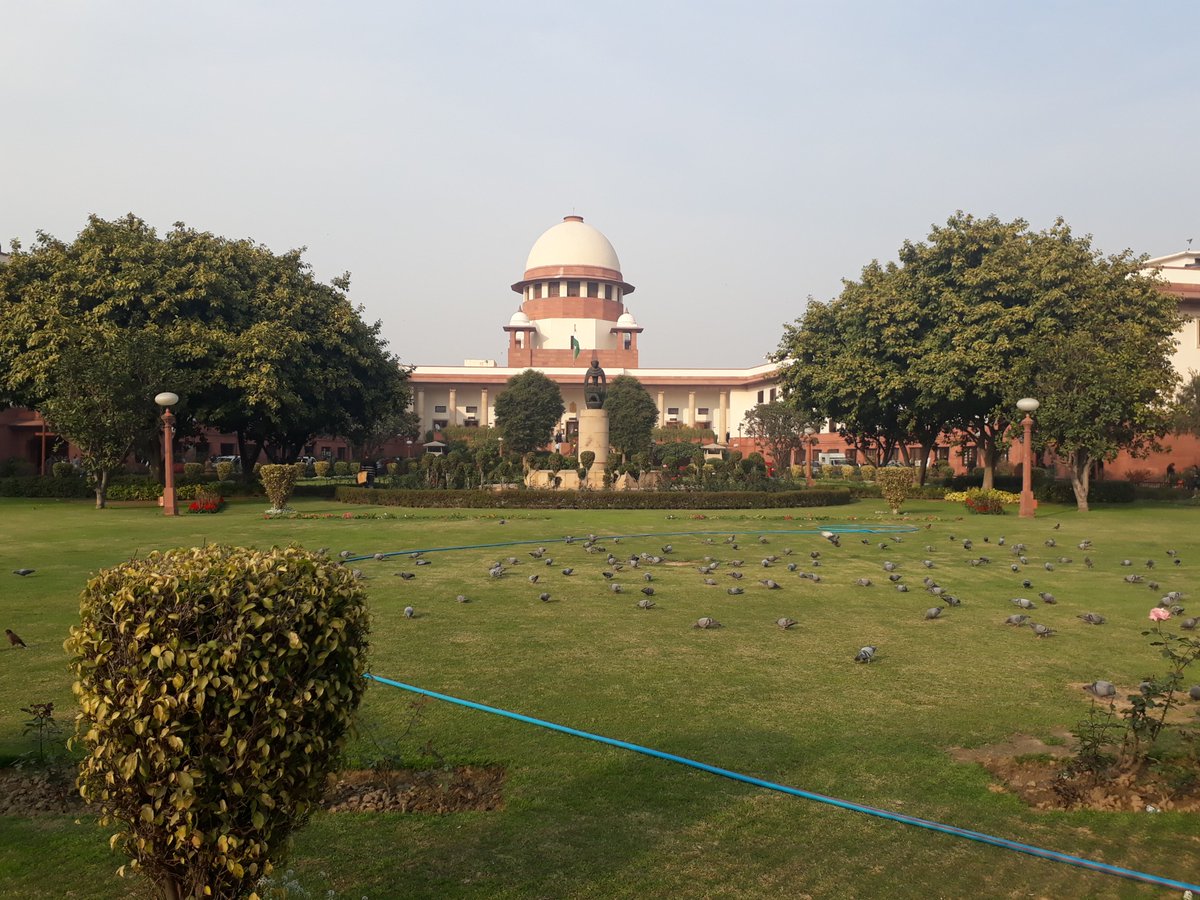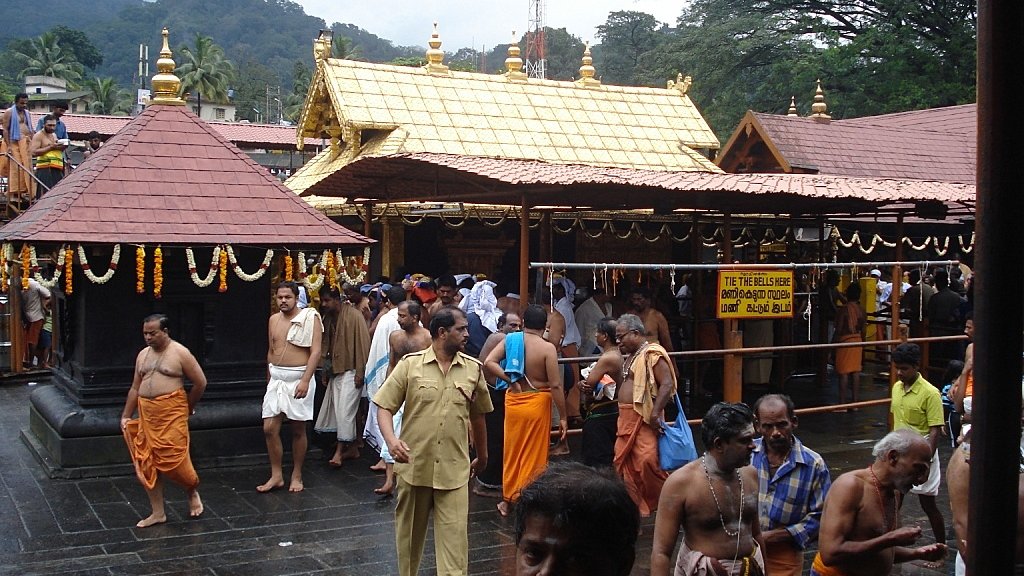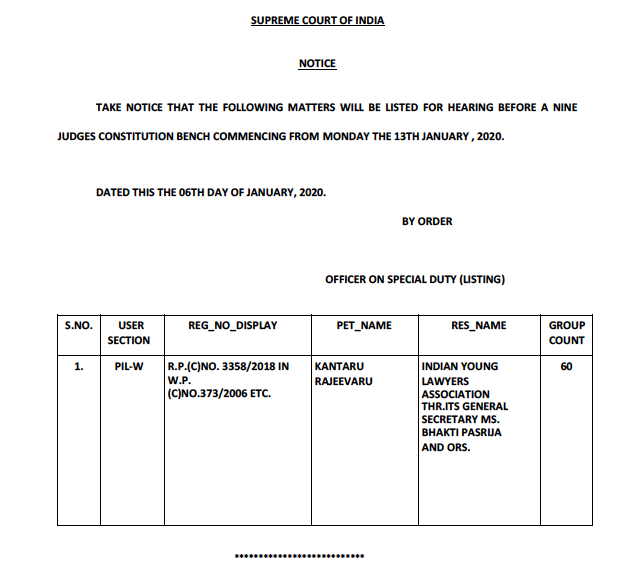
<<Maratha Reservation Challenge>>
The Supreme Court’s Constitution Bench will hear arguments on the constitutional challenge to SEBC Act granting reservation to Maratha
We have traced the history of this case here:
scobserver.in/court-case/mar…
#MarathaReservation
1/n
The Supreme Court’s Constitution Bench will hear arguments on the constitutional challenge to SEBC Act granting reservation to Maratha
We have traced the history of this case here:
scobserver.in/court-case/mar…
#MarathaReservation
1/n
Yesterday, Sr. Advs Arvind Datar & Shyam Divan argued that the 50% reservation limit must be followed & the #MarathaReservation was not an ‘exceptional circumstance’. Also, Marathas are not backward but a politically organised & dominant class
More: bit.ly/3vvd7Nt
2/n
More: bit.ly/3vvd7Nt
2/n
<<Maratha Reservation: 16 March Hearing>>
Key highlights:
Sr Adv Shyam Divan argued that the 102 Constitution Amendment no longer allows States to categorise Social and Educationally backward classes: SEBC Act violated this Amendment.
More: bit.ly/3loEapo
3/n
Key highlights:
Sr Adv Shyam Divan argued that the 102 Constitution Amendment no longer allows States to categorise Social and Educationally backward classes: SEBC Act violated this Amendment.
More: bit.ly/3loEapo
3/n
- Sr Adv Gopal Sankaranarayan examined the effect of the 102nd Amendment Act and the role of ‘External Aids’ in interpretation.
- Sancheti raises concerns about the Gaikwad Committee’s collection and analysis of data.
4/n
More: bit.ly/3loEapo
#MarathaReservation
- Sancheti raises concerns about the Gaikwad Committee’s collection and analysis of data.
4/n
More: bit.ly/3loEapo
#MarathaReservation
Our consolidated report on today's hearing: scobserver.in/court-case/mar…
Sr Advs Shyam Divan, Gopal Shankaranarayan, Siddharth Bhatnagar and Pradeep Sancheti argued against the #MarathaReservation and the SEBC Act.
The Court adjourned, with Sancheti scheduled to continue tomorrow.
Sr Advs Shyam Divan, Gopal Shankaranarayan, Siddharth Bhatnagar and Pradeep Sancheti argued against the #MarathaReservation and the SEBC Act.
The Court adjourned, with Sancheti scheduled to continue tomorrow.
<<Maratha Reservation: 17 March Hearing>>
Sr. Adv. Pradeep Sancheti is slated to continue his arguments in the morning.
The advocates for the petitioners would conclude today.
#MarathaReservation
Sr. Adv. Pradeep Sancheti is slated to continue his arguments in the morning.
The advocates for the petitioners would conclude today.
#MarathaReservation
Sancheti's arguments primarily revolved around the inaccuracies of the Gaikwad Commission Report. He noted, the method of data collection and analysis adopted by the Gaikwad Commission is ‘patently flawed’ & does not adhere to any scientific and statistical standards.
7/n
7/n
Sr Adv Rajeev Dhawan stressed the ‘exceptional circumstances’ justification in order to exceed the 50% limit in reservation.
The reservation for Marathas does not offer convincing justification for going over the limit, he added. He will continue his arguments post-lunch.
8/n
The reservation for Marathas does not offer convincing justification for going over the limit, he added. He will continue his arguments post-lunch.
8/n
In today’s hearing Sancheti, Dhavan and Marlapalle argued that the SEBC Act fails to comply with the Constitution, defending their interpretation of the equality framework.
More in our detailed daily report: bit.ly/3lp0ZsU
#MarathaReservation
9/n
More in our detailed daily report: bit.ly/3lp0ZsU
#MarathaReservation
9/n
<<Maratha Reservation: 18 March Hearing>>
Today the applicants seek to complete their arguments.
Senior Advocate BH Marlapalle continued his submissions from yesterday.
#MarathaReservation
10/n
Today the applicants seek to complete their arguments.
Senior Advocate BH Marlapalle continued his submissions from yesterday.
#MarathaReservation
10/n
• • •
Missing some Tweet in this thread? You can try to
force a refresh





